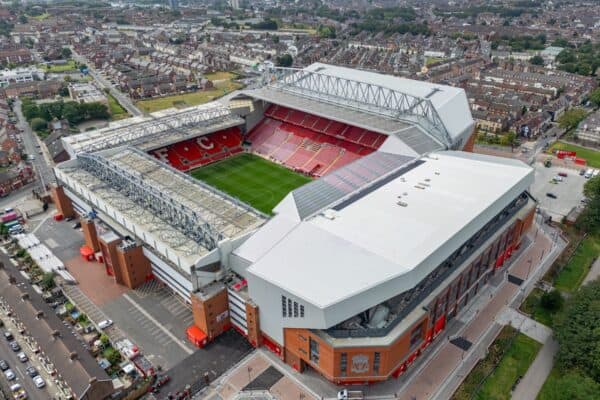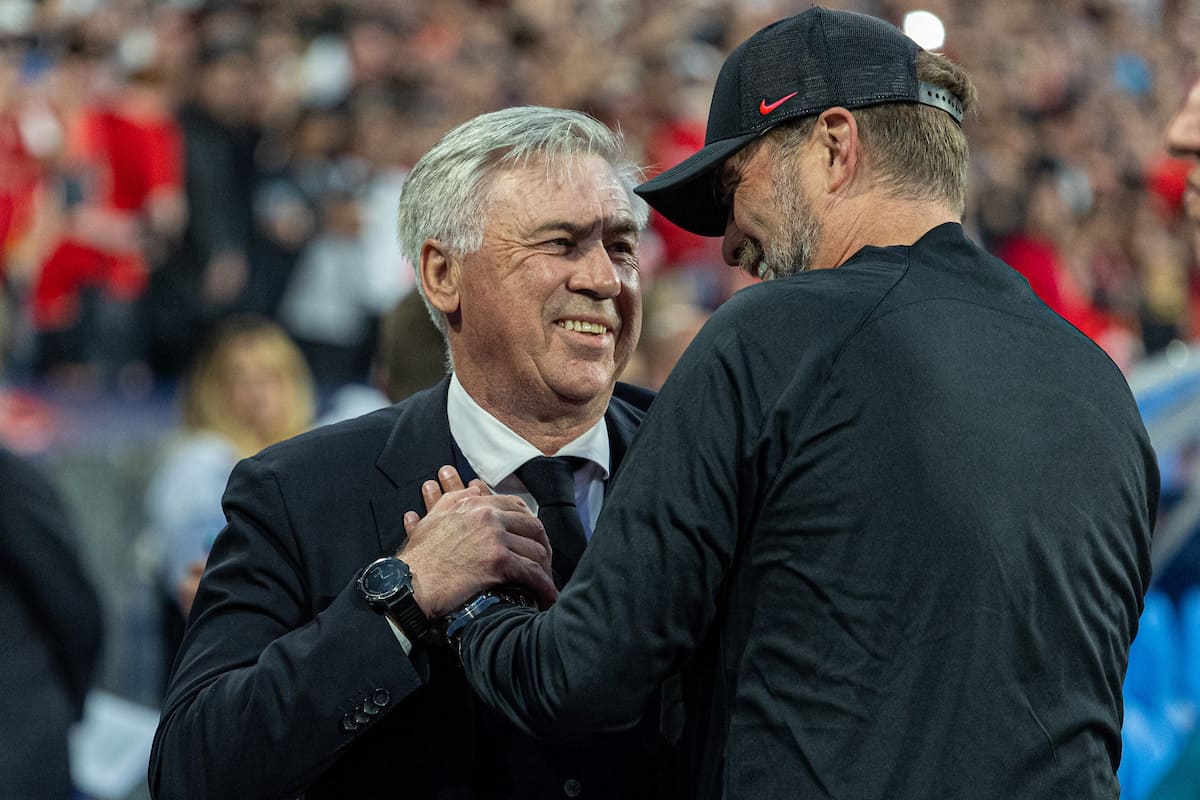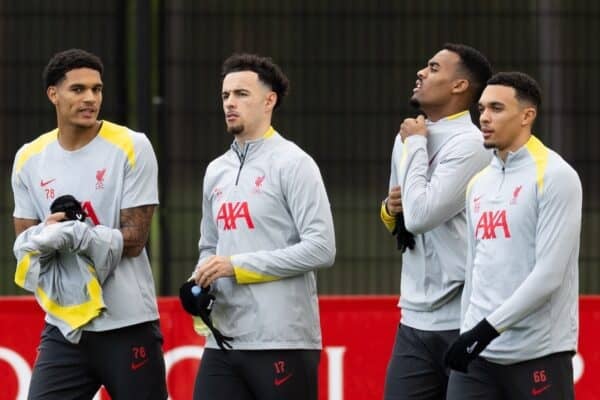Demand will always be greater than the supply when it comes to Anfield and accessing tickets, but there are a number of reasons why it cannot be expanded further.
Anfield has undergone a significant transformation over recent years, with owners Fenway Sports Group overseeing redevelopments to the Main Stand and Anfield Road End.
In 2010, capacity was 45,362 and plans were drawn up to leave the club’s spiritual home. In 2024, the ground can now hold 61,276 fans – but further expansion will not be on the cards.
Here are five reasons why.
1. Significant investment in transport infrastructure
As the ground has expanded, the ability to get to and from Anfield via public transport or personal vehicles has become increasingly harder.
Many will be familiar with staring at brake lights for miles on end after a match!
During any expansion process, the club have needed to present an infrastructure plan, and any hopes of further redevelopment would require significant upgrades to cater to the masses.
A new tram or railway line would be the obvious solution, but that would necessitate significant investment from the Liverpool City Council.
2. No space to expand Sir Kenny Dalglish Stand
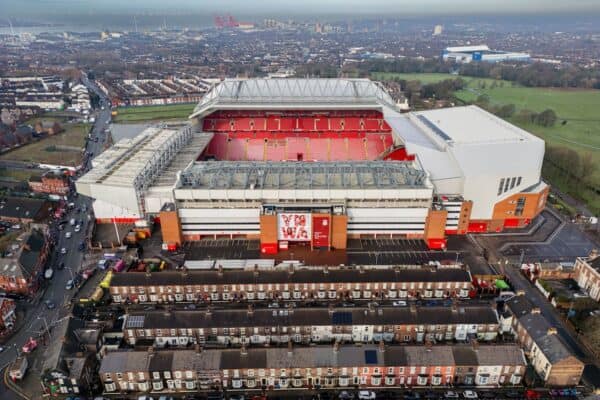
The Sir Kenny Dalglish stand backs onto a row of occupied houses on Skerries Road and beyond, an entire community that would need to be displaced if you were to draw up plans for expansion.
Houses were demolished for the Main Stand upgrade, and the club bought a number of them as part of their plans, but it still displaced many and was a source of controversy.
There would, rightly, be uproar if they attempted to do the same for the Sir Kenny Dalglish Stand. To put it simply, it is a non-starter.
3. The Kop backs onto a main road
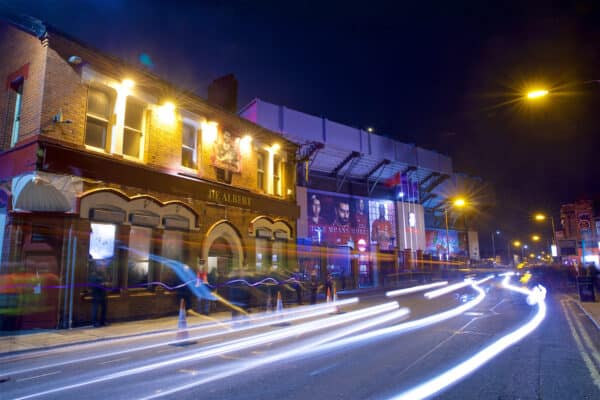
Although many would be eager to see the Kop grow in size, the stand runs parallel to housing, a main road and shops.
Any plans are not feasible as it would cause too much disruption to the local community – even if the stand were to be built over Walton Breck Road, as some have optimistically suggested.
Another case of there being no room to expand.
4. Significant work for minor increase to capacity

Another argument around the Kop is why not fill in the corners that adjoin the Main Stand and the Sir Kenny Dalglish Stand – thus making it wider and not ‘longer’.
That would prove to be a significant undertaking as the stanchions, which support the stands, would need to be removed and re-engineered – a big job for a marginal increase to Anfield’s capacity.
5. Local community vs. the club

Any further redevelopment of Anfield would have a significant impact on the existing community, and for the club, it would need to make financial sense.
With a current lack of space and transport infrastructure, expansion is not viable to satisfy either the club or the local residents.
What is, though, is updating existing areas of the stadium. Sam Kennedy, chief executive officer of FSG, said in 2022, “You’ll probably see us focus more inside than outside in the future.”
The council, meanwhile, are focusing on a regeneration of the Anfield area, with a £4 million scheme to upgrade the main road leading to the stadium, plus developments to benefit the local community.
